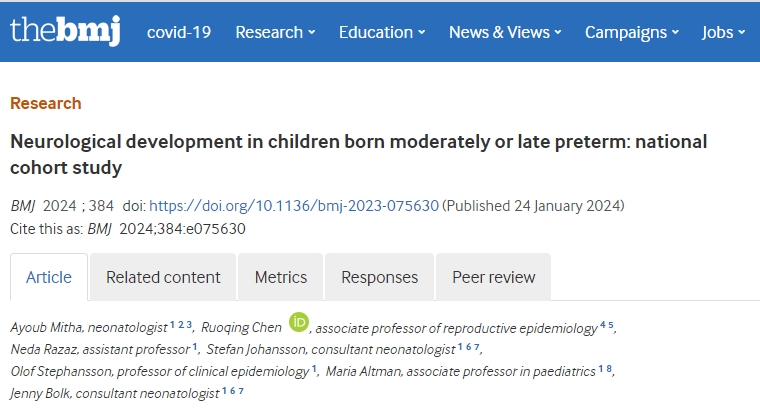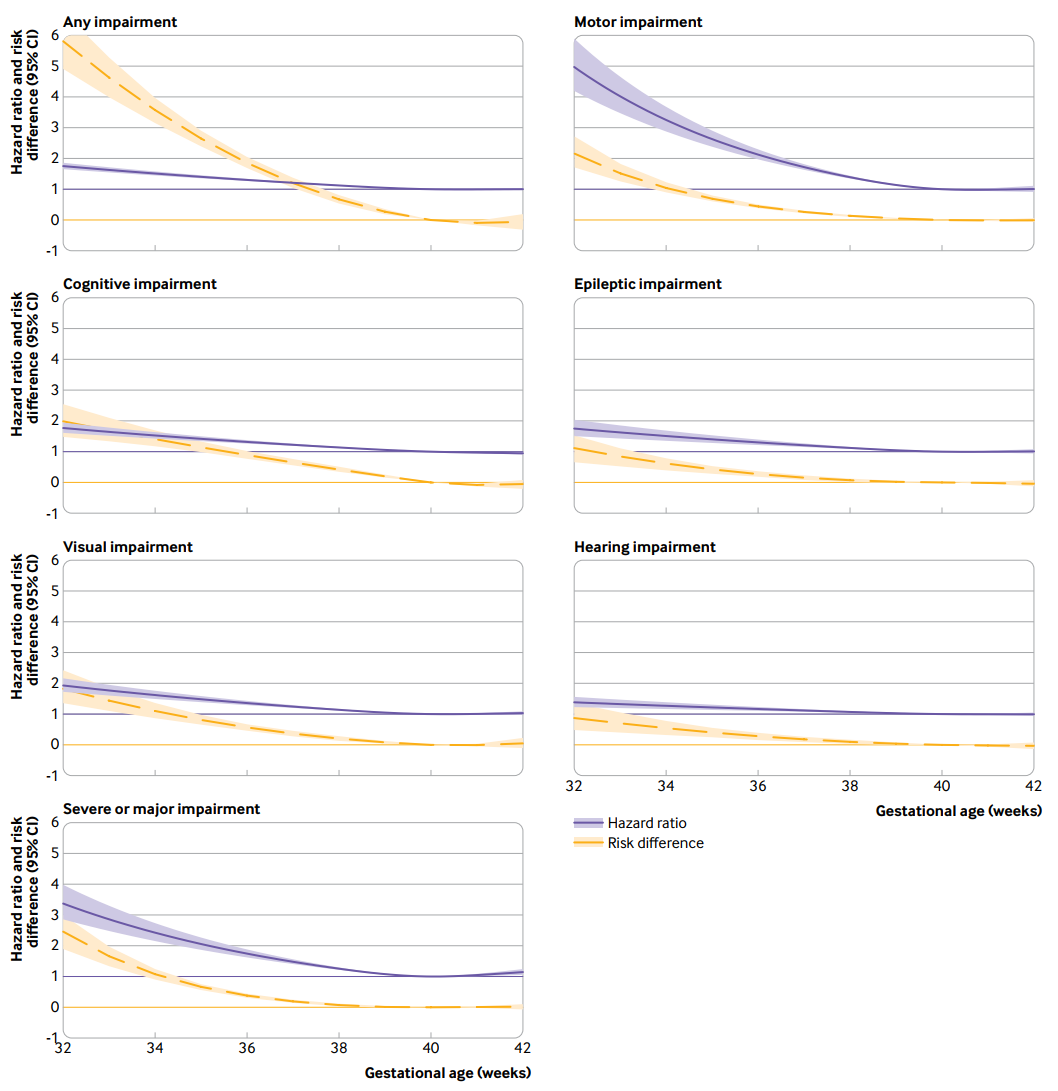A paper recently published in The British Medical Journal warns that the long-term health risks of neurological development in children born moderately or late preterm should not be underestimated. Corresponding author of the paper Chen Ruoqing, an associate professor from the School of Public Health (Shenzhen) at Sun Yat-sen University, suggested that parents should be vigilant, advocating for strengthened follow-up in medical and public health systems.

Chen explained that globally, approximately 13 million preterm infants are born each year, accounting for over 10% of newborns. Compared to children born extremely preterm (<28 weeks) or very preterm (28 to <32 weeks), children born moderately or late preterm (32-36 weeks) account for about 80% of all children born preterm. However, they are often considered to have relatively lower health risks due to better birth conditions and thus do not receive systematic follow-up and attention in many countries.
"However, our research shows that the proportion of neurodevelopmental impairments in moderate preterm infants (32-33 weeks) and late preterm infants (34-36 weeks) is as high as 11% and 8%, respectively. These infants exhibit higher rates of motor, cognitive, epileptic, visual, and auditory neurodevelopmental disorders compared to full-term infants. The younger the gestational age, the higher the risk. For instance, babies born at 32 weeks had nearly five times the risk of motor impairments compared to babies born at 40 weeks," said Chen.

Hazard ratio (solid purple line) and risk difference (dashed yellow line) of adverse neurodevelopmental outcomes of children born at different gestational ages.
This study suggests that more attention should be paid to the neurodevelopment of children born moderately or late preterm during the follow-up of preterm children. Doctors and parents should closely monitor children's development, and timely referral for intervention treatment is necessary if any abnormalities are detected.
The results also show that, even at full term, children born early term at 37 to 38 weeks have a higher risk of neurodevelopmental impairment compared with those born full term at 39 to 40 weeks, about 57 more per 10,000 children.
"Early delivery for non-medical reasons should be avoided," Chen said. If necessary, delivery can be delayed to reduce the adverse effects of early delivery on the health of the fetus."
The study is based on the long-term follow-up of Professor Chen and researchers at Sweden's Karolinska Institutet of 1.28 million children born at 32 to 41 weeks between 1998 and 2012 in Sweden for an average of up to 13 years.
Chen hopes that this international cooperation can promote future cooperation projects between Sweden and China, strengthen exchanges on the follow-up of children born preterm and the construction of medical care systems, and expand scientific research in the field of children's neuropsychological development.
Author | Hannah, Fang Yuqing (intern), Huang Chen (intern)
Editor | Steven, Monica, James
















